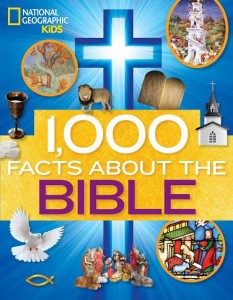A guest post by Deacon Jerry Schiffer
Becomes Novelist.
Supports life.
Kills self.
The words above (very loosely) represent a literary genre that has come to be known as “flash fiction”–the presentation of a story line that relies on few words to elicit the intellectual involvement and response of a reader. Some peg the number of words allowed at 1,000; others at 500. The most efficient example uses as few as six words to accomplish the author’s story-telling goals.
The example of “flash fiction” above fails on two counts: one, a lack of artistic merit; and two, it’s not entirely fictional–at least I don’t think it is.
 What prompted this reflection was a discussion with my wife, Kathy, who was intrigued by the most effective six-word story ever written, allegedly by Ernest Hemingway. One report suggests that the story came to life as a result of a bet. It is a matter of contention whether Hemingway himself initiated the wager, betting that he could write a complete story using only six words, or whether it was his friends who initiated the challenge, betting that the laconic author could not capsulize a story in just six words.
What prompted this reflection was a discussion with my wife, Kathy, who was intrigued by the most effective six-word story ever written, allegedly by Ernest Hemingway. One report suggests that the story came to life as a result of a bet. It is a matter of contention whether Hemingway himself initiated the wager, betting that he could write a complete story using only six words, or whether it was his friends who initiated the challenge, betting that the laconic author could not capsulize a story in just six words.
That point remains unresolved, as apparently does the actual question of authorship. Nonetheless, the six-word story exists and provides, I think, fodder for some interesting reflection.
The story:
“For sale: Baby Shoes. Never worn.”
The author of these words, of course, relies substantially on the imagination of his (or her) readers, who give flesh to this account by constructing novelettes of their own that grow from the seeds that the author has sown. It is not difficult to build the scenario from the material offered by the author.
It is easy to imagine young newlyweds who discover with great joy that they are expecting the first addition to their family. They go to great pains to prepare for this new life, for this much-anticipated, desired, and joyful blessing, fixing a room for the baby, spreading new paint, arranging baby furniture, and, of course, purchasing that first, not-yet-bronzed, pair of baby shoes that symbolizes all the joy that this event promises.
The couple’s pain and disappointment are palpable in the final two words of the story and they are matched (only in part) by the pain and disappointment that are shared by the reader. The promise of life has been dashed and the suffering suggested by these words is very real.
Does the six-word story work? It does for me (given its inherent limitations, of course). But just as interesting as any literary value it might contain is the value of the premise to the pro-life mentality.
The power and value of this literary proposition is inextricably tied to the power and value of life. It is difficult to imagine any other six word story eliciting as much of a response as these few words do. And I believe that is due to the universal reality that exists in the heart of every living person – that life is truly precious, especially the newest, the most vulnerable lives among us.
Clearly, that fact was evident even to Ernest Hemingway (if he, indeed, wrote this story), that blustery hard-living, hard-talking 20th century author who eventually chose to take his own life.
It is a testament to the pro-life effort to realize that for all his bluff and bluster, Hemingway knew the value of life, especially new life, and he chose that as the premise of the most effective six-word story he ever wrote.











